Raleigh woman helps test experimental procedure to reduce food cravings, add weight loss
New procedure may reduce food cravings
FOX Medical Team's Beth Galvin spoke to a woman who underwent a procedure to aid her weight loss by stopping her food cravings.
RALEIGH, N.C. - For years, 34-year-old Mary Morgan Mills of Raleigh, North Carolina, felt stuck in a body that was holding her back.
She was an athlete, played college rugby, competed in endurance races, determined her weight would not slow her down.
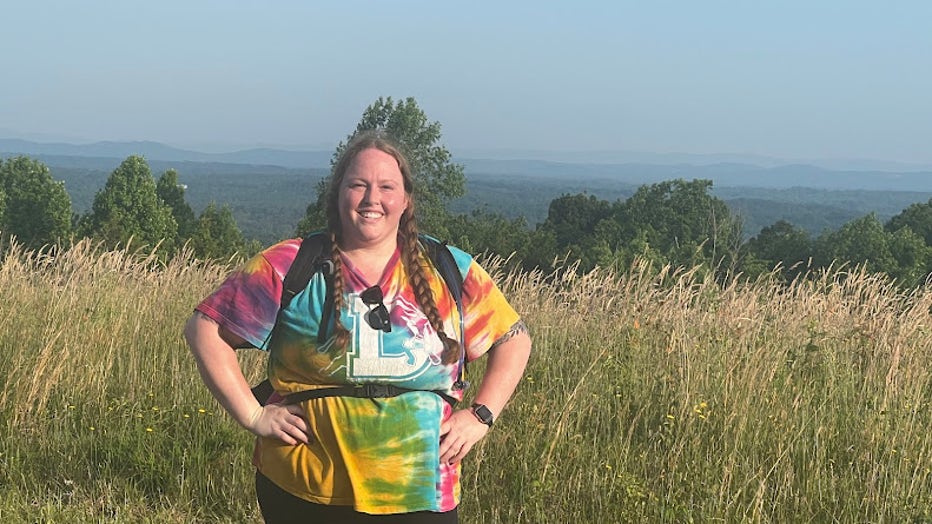
Mary Morgan Mills, 34, of Raleigh, NC, was part of a 10-woman study to test out a new endoscopic procedure designed to limit food cravings and aid weight loss. (Mary Morgan Mills)
"I was 300 pounds when I did the Trailblaze Challenge," Mills says. "It was like 27, 28 miles. So, I've always been able to do things, but it causes excruciating pain."
Mills says she tried diets, weight loss programs, and an injectable medication, semaglutide, she says, made her constantly nauseous.
"Nothing ever really worked," the mental health counselor says. "I had a lot of really negative self-thoughts, and did things in a really unhealthy way, when I needed to."
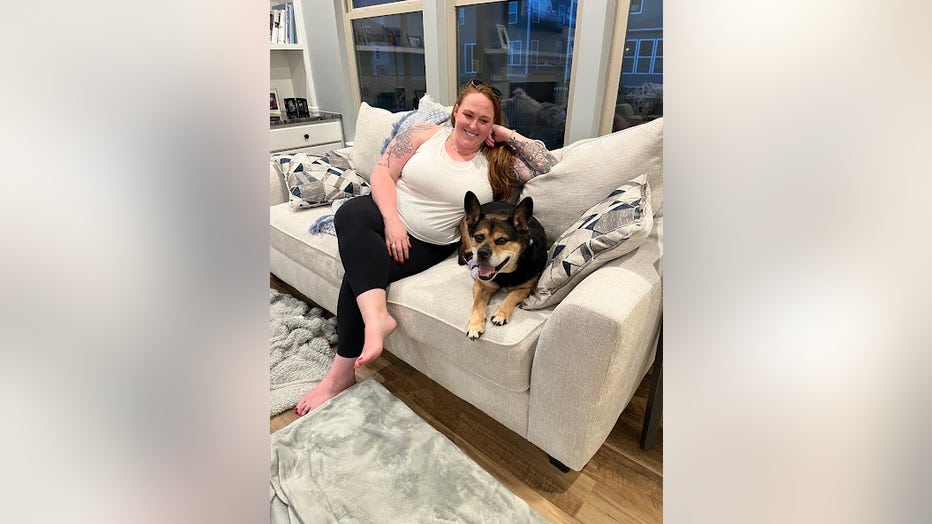
Mary Morgan Mills, 34, of Raleigh, NC, was part of a 10-woman study to test out a new endoscopic procedure designed to limit food cravings and aid weight loss.
Woman struggles to lose weight
The problem?
Mills says she constantly felt hungry.
"I was consistently, every day, I was thinking about what should I eat, what could I eat, what can I get away with eating, when am I not going to be around people, so I can eat what I want," she remembers.
In early 2023, Mills joined a small study, with just 10 volunteers, trying an experimental endoscopic procedure that might be able to reduce her food cravings and help her lose weight.
"I was a little hesitant because I was like, 'Oh, my gosh, it's, it's a procedure, like, I have to go under,'" she says.
Dr. Dan Maselli, a bariatric endoscopist and associate director of research for True You Weight Loss, was the lead researcher on this early study.
Maselli says the procedure zeroes in on a part of the stomach known as the gastric fundus.

Mary Morgan Mills, 34, of Raleigh, NC, was part of a 10-woman study to test out a new endoscopic procedure designed to limit food cravings and aid weight loss.
"The fundus is this thin, walled structure that sits right at the top of the stomach," Maselli says. "And, normally, what it does during meals is it will expand to accommodate the meal. So, it adds capacity to the stomach."
What is ghrelin?
Dr. Maselli says the fundus also produces 80 to 90% of the body's "hunger hormone," ghrelin, which, as the stomach empties, signals to the brain it is time to eat.
People who are overweight or obese tend to produce more ghrelin, and when they restrict their caloric intake, their hunger hormone levels typically rise.
For Mills, that triggered a lot of food "noise."
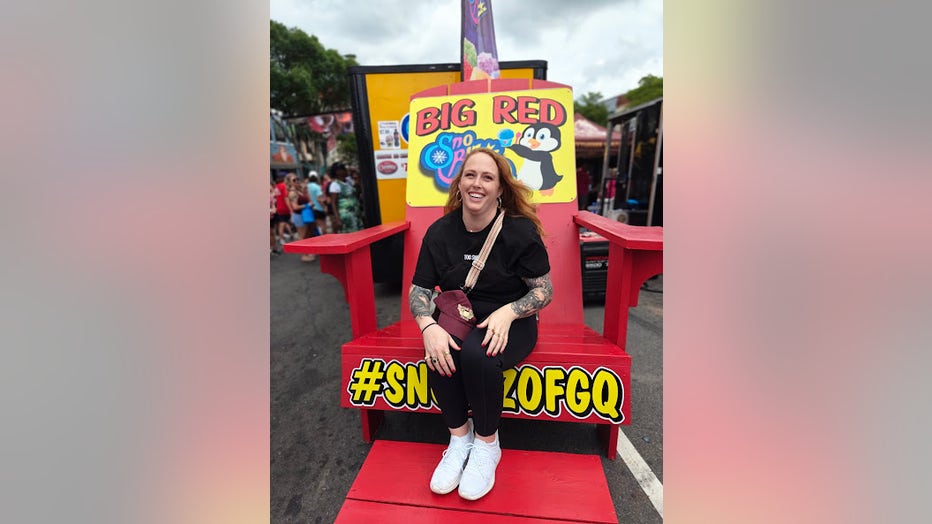
Mary Morgan Mills, 34, of Raleigh, NC, was part of a 10-woman study to test out a new endoscopic procedure designed to limit food cravings and aid weight loss.
"It's almost like if you had a radio on consistently during your entire day," she says. "And, it only goes off when you sleep or when you eat, like, it turns down a little bit when I would eat."
In February 2023, Mills underwent fundal mucosal ablation.
Using an endoscope, Maselli's partner injected fluid into her stomach lining to protect the underlying tissue.
Then, he delivered bursts of heat to ablate or burn off the upper fundal lining, where most of the hunger hormone ghrelin is produced.
"What we found, in the months after this procedure, was that, in fact, ghrelin was reduced," Dr. Maselli says. "We saw a 45% decrease of that hunger hormone circulating in the bloodstream within 6 months of the procedure. In terms of stomach capacity, we saw a 42% decrease in the amount of food it would take to get us to feel full."
Ghrelin treatment for weight loss results
Participants in the trial lost an average of 7.7 percent of their body weight.
Mills had some stomach upset in the days after her outpatient procedure and says she got by on popsicles, protein shakes and "lots of bone broth."
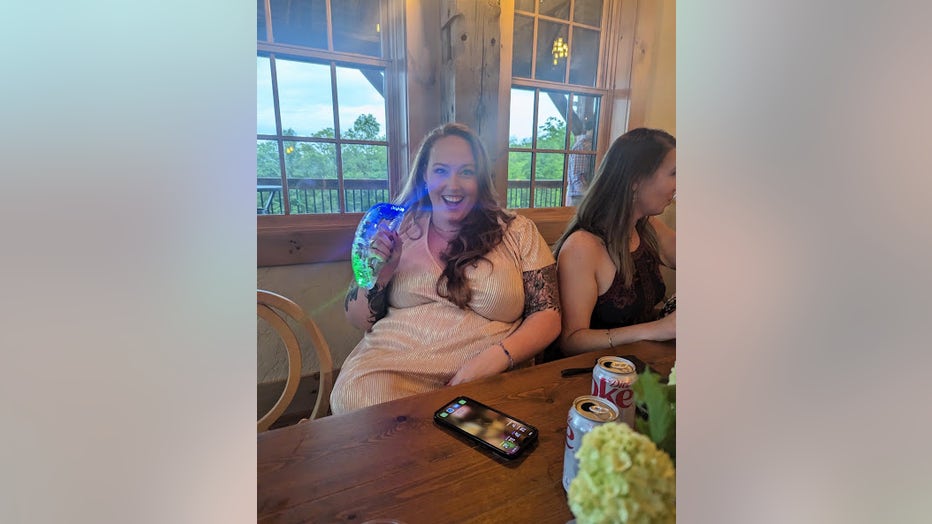
Mary Morgan Mills, 34, of Raleigh, NC, was part of a 10-woman study to test out a new endoscopic procedure designed to limit food cravings and aid weight loss.
"What we saw during this trial was that there were no major adverse events," Dr. Maselli says. "Patients had some symptoms of some GI discomfort for a few days, but there were no complications, no safety concerns.
Because there was a theoretical risk that burning off the fundal lining might cause ulcers, he says, patients in the trial took anti-ulcer medication.
As she recovered, Mills says, she discovered she was no longer fixated on food.
"With that muted hunger, I was able to make decisions better for myself and not so impulsively," she says. "It made me feel a little more in control and not kind of at the mercy of, 'Oh my gosh, I'm hungry all the time."'
Dr. Maselli says this was a safety and feasibility trial, and more research is needed before the technique could be made available to others.
"What we're trying to address is, first, does this work on its own, if we follow these patients out for not just six months, but 12 months in 18 months, is this a meaningful weight loss strategy on its own," Mr. Maselli says. "But, a second, and we think even more important question to answer is, can we leverage mucosal ablation with other existing techniques?"
One of the most common procedures they perform at True You Weight Loss, Maselli says, is an endoscopic sleeve gastroplasty, or ESG, which does not address the fundus.
"So, it's actually the perfect opportunity to combine those two procedures together," he says. "And, that's actually something we're studying as part of a separate clinical trial."
The procedure could also one day be an option for people who cannot stay on weight-loss injectables, which can also help reduce food cravings, Maselli says.
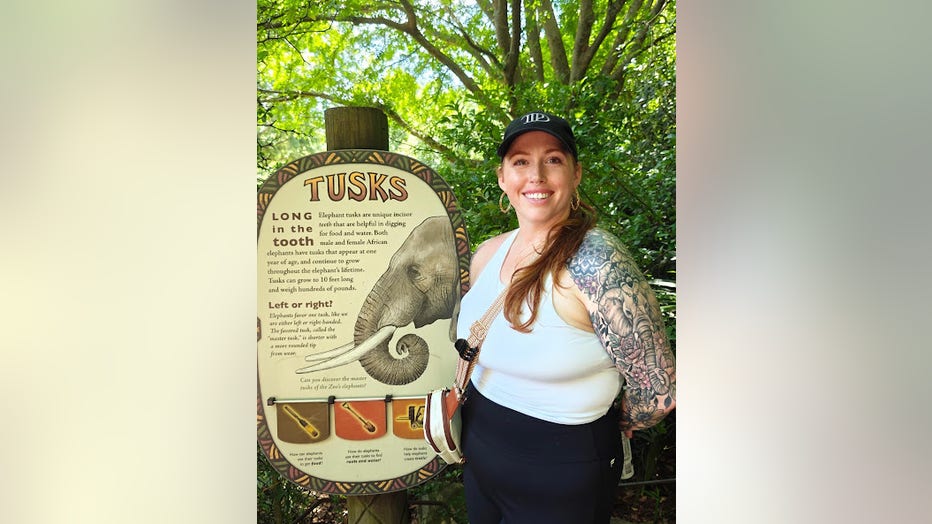
Mary Morgan Mills, 34, of Raleigh, NC, was part of a 10-woman study to test out a new endoscopic procedure designed to limit food cravings and aid weight loss.
North Carolina woman feels great after weight-loss treatment
Mary Morgan Mills says she lost 50 to 60 pounds in the first 6 months after her procedure.
Today, 15 months later, she is now down 110 pounds.
The cravings that once dogged her are gone.
"I think that the reduction of weight really helps the relationship between my mind and my body," Morgan says. "And, it's just created this environment where I can build friendships and relationships and do things I didn't have the confidence to do before."
"Now, I feel like I look like the Mary Morgan that's in my brain," she adds.
This story is being reported out of Atlanta

